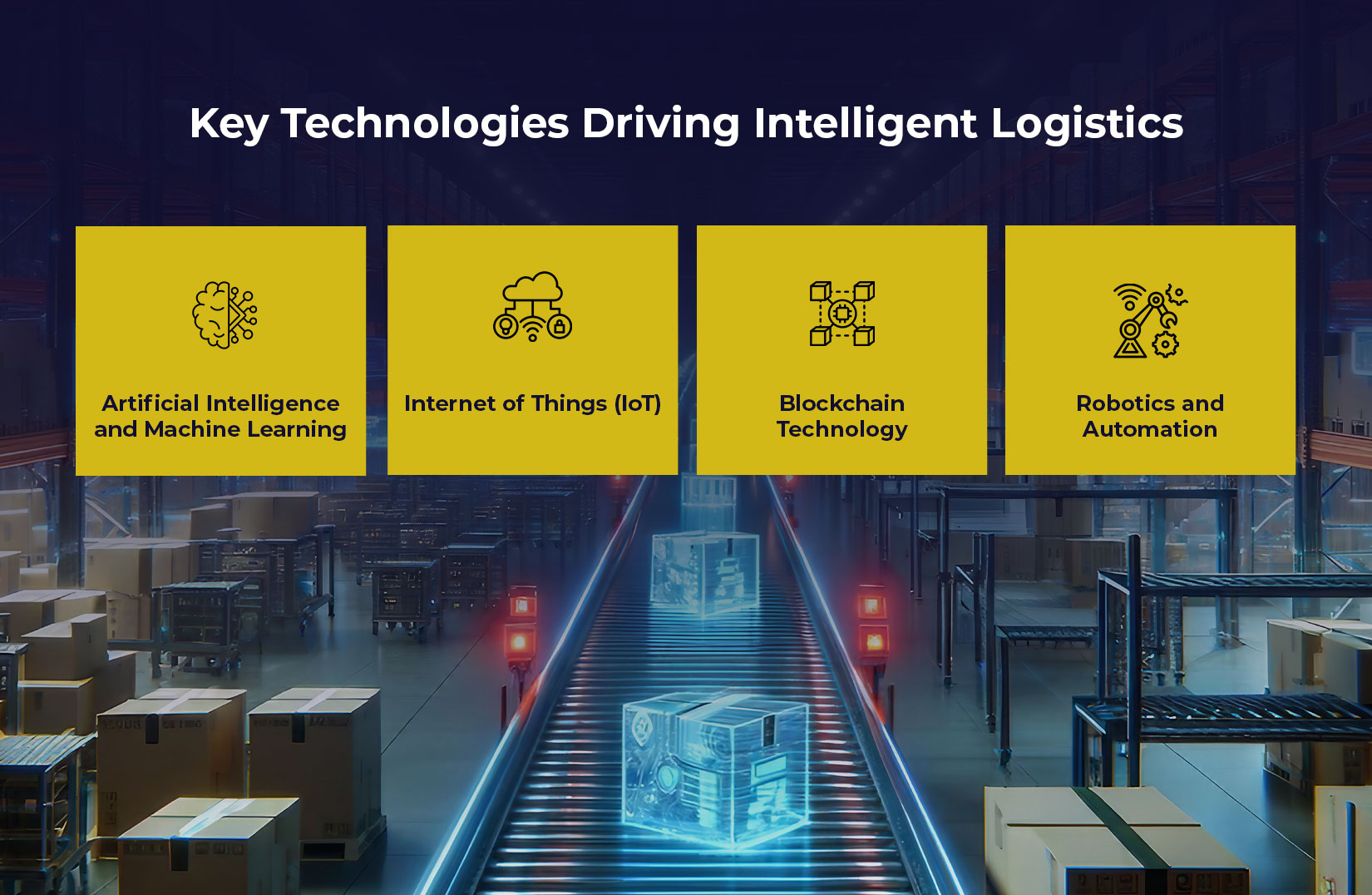
The Future of Logistics: From Speed to Intelligence
The logistics industry is experiencing a rapid transformation. While traditional logistics focused primarily on speed and efficiency, today’s challenges are pushing companies toward more intelligent and data-driven solutions. Innovations in artificial intelligence (AI), machine learning, and automation are not just enhancing efficiency. They are also reshaping entire business models in logistics. As the industry continues to evolve, companies are increasingly turning to logistics management software to stay competitive. This helps them meet growing customer demands.
Intelligent logistics is more than just a trend; it’s the future. Businesses now require smarter solutions to optimize their supply chain operations. By integrating automation, data analytics, and advanced technologies like AI, companies can improve forecasting, minimize delays, and reduce costs. A robust logistics management system is becoming essential for businesses looking to adapt to these changes. Those who invest in these technologies will be well-positioned to thrive in the rapidly changing logistics landscape.
The Shift from Speed to Intelligence

Speed has always been a priority in logistics. However, speed without precision leads to inefficiencies and increased costs. Companies now prioritize intelligence-driven logistics, leveraging AI, data analytics, and automation to optimize operations. Predictive analytics helps forecast demand, AI-driven route planning minimizes fuel consumption, and automation enhances warehouse efficiency.
A logistics management system ensures better visibility and control over supply chain processes. It reduces human errors, streamlines inventory management, and improves decision-making. Businesses using AI-powered logistics management solutions report up to a 20% reduction in transportation costs (McKinsey & Company) and improved on-time delivery rates.
Additionally, machine learning algorithms identify inefficiencies and suggest real-time adjustments, reducing delays and optimizing last-mile deliveries. Companies embracing intelligent logistics also experience a 30% boost in operational efficiency and customer satisfaction. As supply chains grow more complex, intelligence-driven logistics will be the key to maintaining a competitive advantage in an increasingly digital world.
Key Technologies Driving Intelligent Logistics

1. Artificial Intelligence and Machine Learning:
AI and ML are revolutionizing logistics. These technologies analyze massive datasets to predict trends, automate tasks, and optimize decision-making. AI-driven logistics management software enhances demand forecasting, reduces costs, and streamlines supply chain processes. Machine learning models continuously improve, making logistics operations more adaptive. Businesses using AI in logistics can reduce operational costs by up to 20% and increase delivery accuracy by 30% (Gartner).
2. Internet of Things (IoT):
IoT plays a crucial role in intelligent logistics by enabling real-time monitoring of goods and assets. Sensors installed in warehouses, vehicles, and cargo provide continuous tracking data. This enhances supply chain visibility, improves inventory management, and minimizes losses. An IoT-enabled logistics management system helps prevent disruptions by sending automated alerts about potential delays or environmental changes that may impact shipments. Companies utilizing IoT technology have reported a 50% reduction in shipment delays (DHL Report).
3. Blockchain Technology:
Blockchain enhances transparency, security, and efficiency in logistics. It creates an immutable record of transactions, ensuring data accuracy and preventing fraud. With smart contracts, logistics processes become more automated, reducing paperwork and improving transaction efficiency. Blockchain-based logistics management solutions have been shown to improve accuracy by 50% and enhance trust among stakeholders. Companies adopting blockchain for supply chain management can reduce administrative costs by up to 30% (Statista).
4. Robotics and Automation:
Automation and robotics are transforming warehousing and transportation. Robotic systems assist with inventory management, order fulfillment, and packaging, reducing manual errors and increasing efficiency. Autonomous vehicles and drones are being tested for last-mile deliveries, improving speed and reducing labor costs. Leading companies like Amazon use over 520,000 robots in their fulfillment centers, increasing productivity by 40%. The best logistics management software integrates automation to streamline warehouse and distribution operations, reducing processing times and costs.
The Role of Logistics Management Software in the Future
A smart logistics management software does more than track shipments. It provides real-time analytics, enhances collaboration, and predicts potential disruptions.
1. Real-Time Tracking and Visibility:
Businesses need complete visibility over their supply chains. A logistics management system offers GPS tracking, automated alerts, and inventory monitoring. This helps companies prevent delays and meet customer expectations.
2. Cost Optimization:
Fuel expenses, idle time, and inefficient routing increase costs. The best logistics management software optimizes routes, predicts fuel consumption, and suggests cost-saving measures. Companies using AI-based logistics management solutions have reported a 30% decrease in operational expenses (Gartner).
3. Sustainability and Green Logistics:
Sustainability is becoming a priority. Businesses are adopting eco-friendly logistics practices. AI-driven logistics management software can suggest fuel-efficient routes, reducing carbon emissions by up to 40% (Forbes).
4. Enhanced Customer Experience:
Customers expect fast and accurate deliveries. A logistics management system provides real-time order tracking and proactive notifications. Companies using intelligent logistics management solutions see a 25% improvement in customer satisfaction (PwC).
Conclusion
The future of logistics is intelligence-driven. Businesses that invest in logistics management software will gain a competitive edge. With AI, IoT, and blockchain, logistics operations are becoming more efficient and transparent. The best logistics management software ensures real-time tracking, cost savings, and enhanced customer satisfaction. As technology advances, intelligent logistics will define the industry’s future. Companies that adapt to these changes will thrive in the competitive landscape.
Investing in the right logistics management solution today ensures long-term success in tomorrow’s supply chain ecosystem. So, click on the red button and book a demo with LogiNext Solutions.
26







@LogiNext